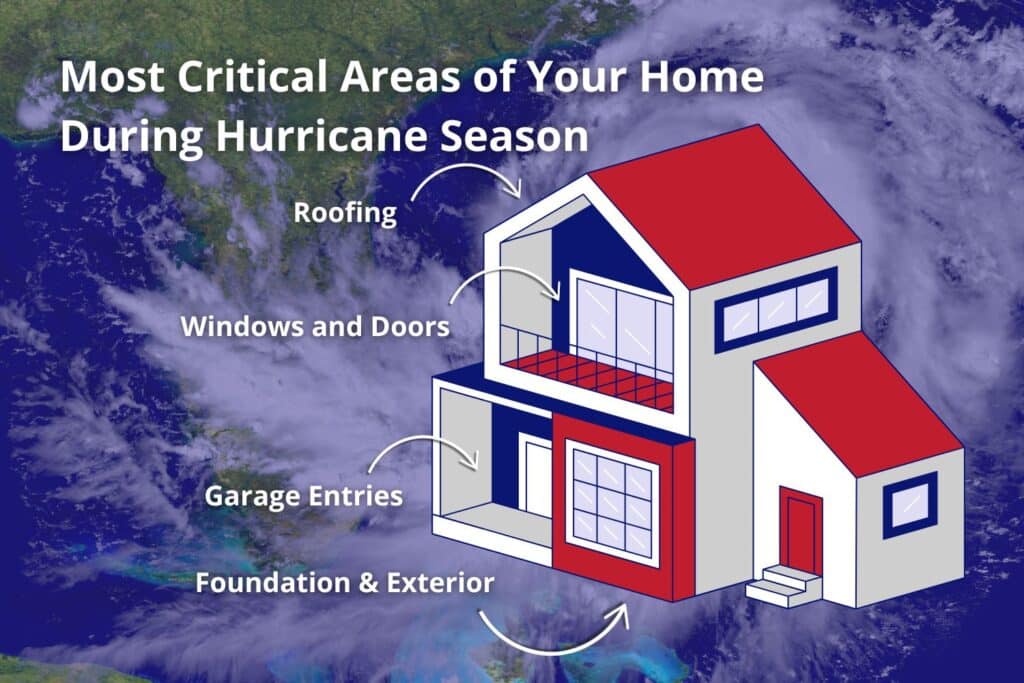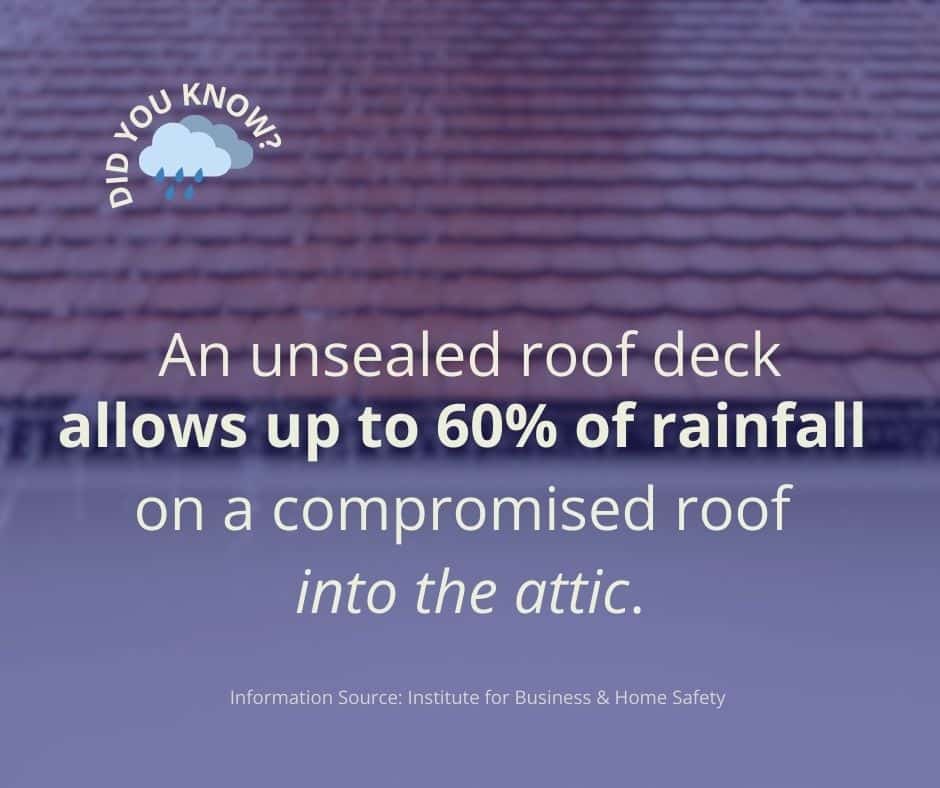Hurricane season brings powerful storms that can cause serious damage to homes. High Florida winds, flying debris, and heavy rain put roofs, windows, and foundations at risk—which is why you should fortify them in advance.
Taking proactive steps now can strengthen your home against extreme weather, giving you peace of mind and potential savings on insurance. This guide covers how to fortify a Florida home effectively, from critical upgrades to preventative checks that make a real difference.
What It Means to Fortify a Florida Home
Fortifying a home means strengthening it against hurricane damage by reinforcing weak points and making it more resistant to extreme weather.
Florida’s Fortified Home™ standards focus on structural improvements that help homes withstand high winds, heavy rain, and flying debris.
Key upgrades for a fortified home include:
- A stronger roof with reinforced connections and impact-resistant materials
- Impact-rated doors and windows designed to hold up against debris
- A reinforced garage door to prevent wind-driven structural failure
- Sealed and strengthened exterior walls to block water intrusion
Homes that meet Fortified Home™ standards not only stand a better chance against hurricanes but may also qualify for insurance discounts.

Critical Areas to Strengthen Before Hurricane Season
Some parts of a home are more vulnerable than others in a storm. For example, an unsealed roof deck allows up to 60% of the rain that falls on a compromised roof to enter the attic.
Addressing these areas before hurricane season reduces the risk of major damage.
Roof
A home’s first line of defense is its roof. If shingles or fasteners are weak, strong winds can rip them away, exposing the structure underneath. Roof reinforcements include:
- Upgrading to hurricane-rated shingles and sealing roof decking
- Installing stronger fasteners to keep shingles and underlayment in place
- Strengthening roof-to-wall connections with metal clips or straps
Windows and Doors
Wind and debris can shatter standard windows and doors, allowing dangerous pressure changes inside the home. Protective upgrades include:
- Installing impact-resistant glass or adding storm shutters
- Reinforcing entry doors with stronger frames and deadbolts
- Bracing double doors and sliding glass doors to prevent failure
Garage Door
A weak garage door can buckle under hurricane-force winds, leading to structural collapse. Fortification steps include:
- Replacing lightweight garage doors with wind-rated models
- Installing bracing kits to strengthen existing doors
Exterior Walls and Foundation
If a home isn’t properly sealed, wind-driven rain can seep through cracks, leading to costly water damage. Strengthening measures include:
- Sealing gaps and cracks in siding, stucco, and masonry
- Installing flood-resistant barriers in low-lying areas
Wind and Water Protection
Fortifying a home goes beyond impact-resistant materials. Simple improvements help keep wind and water from causing damage:
- Sealing gaps around doors, windows, and vents to prevent leaks
- Improving drainage with gutters, downspouts, and properly sloped landscaping
- Using wind-resistant materials like reinforced siding and storm-resistant soffits
Small upgrades like these create extra layers of defense against hurricanes.
Fortified Home™ and Insurance Benefits
Fortified Home™ standards provide a structured way to improve storm resilience, and homes that meet these standards may qualify for lower insurance premiums. Florida homeowners who invest in fortification can benefit from:
- Wind mitigation credits that lower home insurance costs
- Stronger structural integrity, reducing the risk of costly repairs
- Increased home value, as fortified homes are more attractive to buyers
The certification process involves a professional inspection to verify that a home meets Fortified Roof, Fortified Silver, or Fortified Gold standards, each offering different levels of protection.

Preventative Checks Before Hurricane Season
A well-maintained home is a stronger home. Before hurricane season, checking key areas can help prevent unexpected failures when a storm hits:
- Schedule a wind mitigation inspection to assess structural vulnerabilities
- Check the roof for missing or loose shingles and secure any weak points
- Inspect windows, doors, and garage doors for gaps, cracks, or weakened seals
- Test storm shutters to ensure they open and close properly
- Evaluate drainage around the home to prevent flooding risks
When to Call a Fortified Evaluator
Some hurricane protection upgrades require an expert’s input. Calling a fortified evaluator can help homeowners understand what improvements will make the biggest difference.
A professional evaluation is recommended:
- After a major storm to assess hidden structural damage
- Before hurricane season to identify areas that need reinforcement
- When buying a home to ensure it meets wind-resistant standards
- If applying for Fortified Home™ certification to verify eligibility
An evaluator can recommend the best upgrades based on a home’s current condition and local risk factors.
Conclusion
Fortifying a home against hurricanes provides long-term protection, reduces repair costs, and may lead to insurance savings. Taking steps before storm season strengthens critical areas like the roof, windows, and doors, improving overall safety.
A professional evaluation ensures that upgrades meet Fortified Home™ standards and provide the best protection. KO Inspections offers expert evaluations to help Florida homeowners fortify their homes with confidence. Contact us to schedule an assessment and strengthen your home before the next storm.

